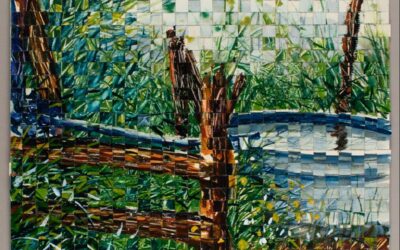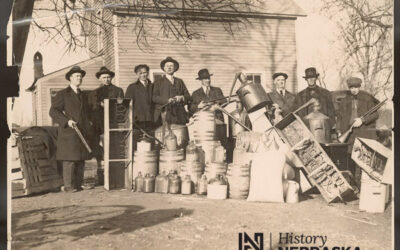In its heyday, spanning the mid-eighteenth to the late nineteenth centuries, bare-knuckle prizefighting was a popular sport, much as gloved boxing is today. The legendary champion of the 1880s, John L. Sullivan, was probably the best-known American prizefighter. However, the rowdiness and wagering that accompanied the sport gave it everywhere an unsavory reputation. From the Young Men’s Journal(Omaha), February 17, 1893:
“For some months past the Omaha Athletic Club, an organization composed of prominent young men and business and professional men of this city, has been having a series of what have been termed ‘gentlemen’s contests.’ These were popularly supposed to be simply sparring matches, and with this understanding were permitted by the police authorities. From time to time reports have been circulated to the effect that these ‘gentlemen’s contests’ were attended with shocking brutality, and that men engaged in them were bruised and beaten after a fashion savoring of the prize ring. To those on the inside it was known that for these contests a purse was hung up to be given to the man who knocked out his opponent, or, in the language of the ring, ‘put him to sleep.’
“A climax was reached this week when the managers of the club proposed to have the Daly-O’Donnell fight, which was prohibited at Sioux City, take place in the club building. Chief of Police Seavey got wind of the affair, and wrote to the president of the club, Representative George W. Ames, saying that he would prohibit the fight from taking place, that he had prohibited prize fighting in Omaha for five years, and proposed to continue to do so as long as he remained chief of police.”
Ames prohibited the fight, and the Young Men’s Journal noted, “Much credit is due Chief Seavey and Mr. Ames for so promptly interfering to save Omaha the disgrace of having a prize fight in her midst, and especially in an institution which has connected with it the class of young men who are members of the Omaha Athletic Club. . . . It is hoped that it will not again descend to the depths from which it has been lifted by Chief Seavey, and that it may become what it was designed to be-a harmless and helpful place of recreation for young men.”
A separate article in the Journal noted that a bill had been introduced in the Illinois House of Representatives to make prize-fighting illegal and urged that Nebraska consider a similar measure.



